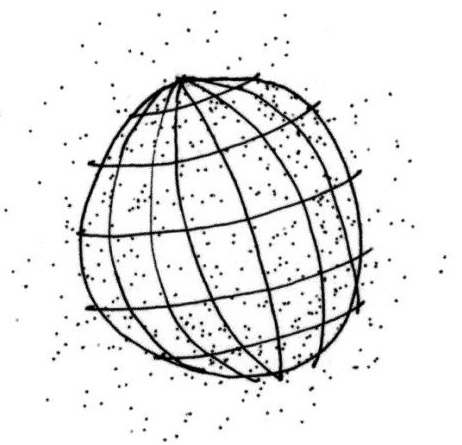I posted this to a list I’m on, where a long thread on Net Neutrality was running out of steam:
Since we seem to have reached a pause in this discussion, I would like to suggest that there are emergent properties of the Internet that are not reducible to its mechanisms, and it is respect for those emergent properties that drives NN advocates to seek policy protections for the flourishing of those properties. So let’s set NN aside for a bit, and talk about those.
For example, whether or not “end to end” is a correct description of the Internet’s architecture, that’s pretty close to how it looks and feels to most of its users, most of the time. By that I mean the Net reduces our functional distance from each other (as ends) to zero, or close enough to experience the distance as zero. There little if any sense of “long distance” — that old telco term. Nor is there a sense that it should cost more to connect with one person or entity than another, anywhere in the world (except where some mobile phone data plans leverage legacy telco billing imperatives).
And while the routers, CDNs and other smart things between the Net’s ends deserve respect for their intelligence, they still tend to serve everything that runs across the Net without much prejudice, and thus appear to be “stupid” in the sense David Isenberg visited in The Rise of the Stupid Network, which he wrote for his unappreciative overlords at (Ye Olde) AT&T back in ’97. In other words, users don’t sense that network itself wants to get in the way of its uses, or to bill for any one kind of use while not billing for another. (Yes, sites and services on the Net can bill for whatever they want. But they are not the Net, any more than a store on Main Street is the gravity that holds it there.)
While providers of access to the Net charge for the privilege, the Net itself — that thing made possible by its base protocols — has no business model. This is one reason it produces economic externalities in abundance beyond calculation. More than a rising tide that lifts all boats, it is a world of infinitely varied possibilities, all made possible by a base nature that no phone or cable company ever would have invented for the world, had the job been left up to them alone.
I remember, back in the 80s and early 90s, knowing that the Net was a genie still bottled inside universities, large companies and government entities — and that it would grant a zillion wishes once it got out. Which it did, starting in ’95. Ever since then I have devoted my life, one way or another, to understanding What’s Going On with the Net. I never will understand its inner workings as fully as … many others on this list. But I believe I do understand enough about the transcendent virtues of the Net to stand on their side and say we need to preserve and enhance them.
It is clear to me that there is a whole to the Net that is not reducible to any of its parts, any more than a human being is reducible to the body’s organic systems. And I believe it is easy to miss or dismiss that whole when insisting that the Net is only a “network of networks” or some other sum of parts.
When our attention is only on those parts, and making them work better for some specialized purpose, we risk compromising the general purpose nature of the Net… By serving the needs of one purpose we risk crippling countless other purposes.
I’d say more, but I have meetings to attend. This might be enough for now anyway.
The post only got one reply so far, from one of the Net’s founding figures. He approved. [Later… it’s turned into a thread now.]
The problem for Net Neutrality is that the founding protocols of the Net are neutral by nature, and yet the Net is something we mostly “access” through phone and cable companies, which by nature are not. This tends not to be a problem where there is competition. But in the U.S., at least, there mostly isn’t, at least on the wired side. (The wireless side has some interesting rock and roll going on.) This also tends not to be a problem where carriers are just that: carriers, rather than content-delivery systems with a financial interest in favoring the delivery of one kind of content — or one “partner’s” content — over others.
But the Net is about “content” like water is about drinking. Meaning, it’s not. It’s about everything. That’s how it’s neutral.
Leave a Reply